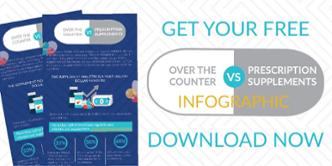Folic acid is one of the many B Vitamins, specifically B9. It is also known as folate. B Vitamins help the body convert carbohydrates found in foods into glucose that the body can use for fuel. They also help the body process fats and proteins. They are important for healthy skin, hair, eyes, and internal organs, especially the liver.
Folic acid plays a special role in proper brain function. It has been linked to healthy emotional and mental health. It is critical for healthy RNA and DNA replication. It is also critical for cell and tissue growth.
What Happens If Someone Doesn't Get Enough Folic Acid?
People with a folic acid deficiency can experience a range of issues that go from mild to severe. Here are a few to consider:
- Birth defects. Pregnant women who do not have enough folic acid are more likely to have children with birth defects. Some of the most severe are neural tube defects that affect the spine and brain development.
- Heart disease. Folic acid helps to manage the body's level of the amino acid homocysteine. High levels of this amino acid have been associated with a higher risk of heart disease.
- Depression. Up to one out of three people with depression can have extremely low levels of folic acid in their bodies. While studies are still pending, some people experience some level of depression relief when they increase their folic acid intake.
Some other conditions that have been linked with a lack of folic acid include poor growth, gingivitis, diarrhea, shortness of breath, irritability, forgetfulness, and mental lethargy.
Most people can get enough folic acid from their diets. However, certain medical conditions, like alcoholism, IBD, and celiac disease can cause severe deficiency. Some medications also lower folic acid levels.
How To Get Enough Folic Acid In Your Diet
Your body prefers to receive nutrients through natural sources. So, eating folic acid-rich foods is the ideal way to go.
- Dark leafy greens, like kale, spinach, mustard greens, and collard greens, are great sources of folic acid, as well as other essential nutrients.
- Various legumes offers plenty of folic acid. Try some lima beans, kidney beans, lima beans, and mung beans to get started. Edamame (soy beans) are great for both folic acids and protein.
- Root vegetables pack a lot of folic acid. A few to add to your diet include beets, turnips, and carrots.
- Beef liver and salmon are great animal sources of folic acid.
Ensure that you are getting plenty of folic acid for optimal health. If you want to learn more about high-grade supplements and optimizing your health, talk with the professionals at Matrix Age Management.






